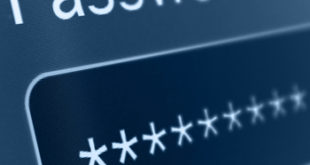Fernando Corbato was the first person to use passwords to protect user accounts. He joined MIT in 1950 to study for a doctorate in physics, but realised during those years his passion for the machines that physicists used to do their calculations.
Computers during the 50s could only handle one processing job at a time. In a bid to overcome this limitation, Dr Corbato developed an operating system for computers called the Compatible Time-Sharing System (CTSS), So rather than have the machine dedicated to one person, CTSS divided up the processing power of a computer into small slices, meaning it could do smaller chunks of work for a number of people.
The computer pioneer sadly passed away at the age of 93 in July 2019. However, despite number industry figures and tech companies stating over the years that his invention is on its way out, security vendor BullGuard believes the story isn’t over just yet. “Some say the password is dead. Long live the password,” Steve Hicks, head of global sales at BullGuard, tells PCR. “There is something like 90 billion passwords in existence so they are definitely not declining. In 2004 Bill Gates said passwords are dead, in 2011 it was IBM’s turn and in 2013 Google rung the death knell for passwords.
“But the password shows no sign of going anywhere. Some estimates predict around 300 billion passwords in the next few years. What is changing is greater awareness about the need for stronger passwords and the importance of two-factor authentication. Biometric ID will certainly gain more traction, yet the password is still going to be with us for some time, but it will likely become just one layer in a wider approach to security.”
Hicks says that he has seen a number of trends emerge over the past few years, such as smart technologies, the internet of things and the advent of voice-driven computing like Alexa.
“At the heart of these new technologies is the need to protect customer data. Due to high profile data breaches people are becoming more aware of the need to safeguard their personal information rather than trust an organisation to do it,” he explains.
“This provides a good opportunity for resellers to focus on protecting personal information. This of course includes guarding against malware such as Trojans and spyware but also on the steps that can be taken to safeguard ID data.”
Dean Wood, operations director at reseller Smart Computers UK, tells PCR that these changes are reflected in the types of enquiries customers are making.
“Over the past six months we have seen an influx of customers coming into the store to discuss security needs and concerns. High profile data breaches and major security hacks, which are getting mainstream media coverage, are fuelling this trend. So rather than us having to talk about vulnerabilities and push people into considering online protection, customers are actually coming to us looking for assistance and guidance on how to bolster their cybersecurity,” says Wood.
When asked if resellers see it as their role to educate customers, both industry experts agreed that it was an important part of selling security products. “Astute resellers clearly see the importance of playing an educational role,” says Hicks. “When you’re immersed in the industry it’s easy to overlook that many people have only a basic grasp on cybersecurity. For instance, how many retail customers know what an IP address is or have any kind of insight into what hackers do with stolen data and how they sell it on? Or how to safeguard children online or identify a fake website? This is basic knowledge for people in the industry. Yet it escapes many consumers. A reseller who can step into this breach can become a trusted cybersecurity advocate for customers and of course grow sales.”
Woods adds: “We are at the coal-face and dealing first-hand with the customer. Our customers are looking to us for advice and guidance. By educating them, we can ensure their personal identities and ID information is protected when online. If we protect our customers we don’t have to deal with the aftermath if they become infected with malware or ID data has been stolen. Naturally this approach works in our favour because we become an ‘expert’ voice who can offer guidance.”
Smart Computers UK, which solely works with BullGuard for its consumer security solutions, outlines the importance of the support of a switched-on vendor when selling their products to customers. “BullGuard are extremely helpful. For instance, they provide printed guides in simple, easy-to-read formats for parents and silver surfers when using the internet. We put the guides in the window and there is a high demand for them. We get people coming into the store to enquire about the guides, so we are definitely meeting a pressing need,” says Woods.
“Additionally BullGuard runs a detailed blog page with the information on the latest threat trends which we can circulate to our customers via email and social media. BullGuard is about the only vendor we work with who is still supplying this level of educational content to help the customer understand the security landscape.”
This article is part of PCR’s Security Sector Spotlight – in association with 
For more security-themed articles, click here
Like this content? Sign up for the free PCR Daily Digest email service to get the latest tech news straight to your inbox. You can also follow PCR on Twitter and Facebook.
Read the latest edition of PCR’s monthly magazine below:
 PCR Tech and IT retail, distribution and vendor news
PCR Tech and IT retail, distribution and vendor news



